As a precursor to the Delhi Arbitration Weekend, 2025, the Delos Dispute Resolution (‘Delos’) organized a Training Session on Award Writing to discuss and illustrate the important aspects of award writing, the key essentials of a good award, and the considerations that an arbitrator has to keep in mind while writing one.
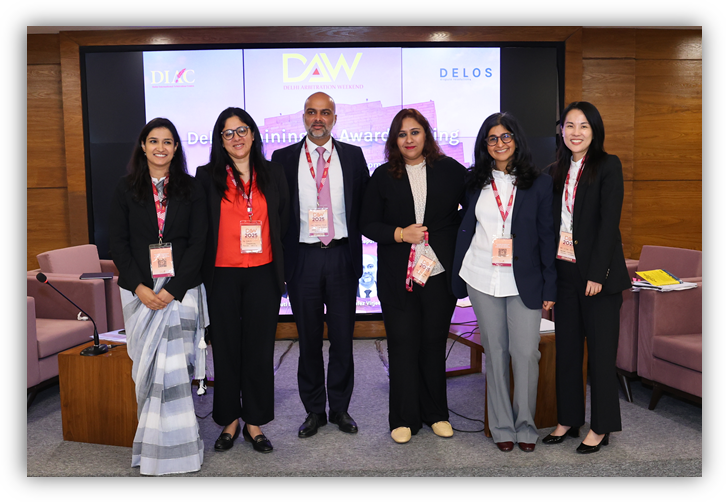
Moderated by Ms. Aanchal Basur, Partner, AB Law, the erudite panel comprised of eminent legal professionals, namely, Ms. Lijun Chui, Partner, Simmons & Simmons, Singapore; Ms. Diya Kapur, Senior Advocate; Ms. Shruti Sabharwal, Partner, Shardul Amarchand Mangaldas & Co; Ms. Nidhi Parekh, Vice President, Legal, Swan Group; and Mr. Hafez Virjee, President and Co-Founder, Delos Dispute Resolution.
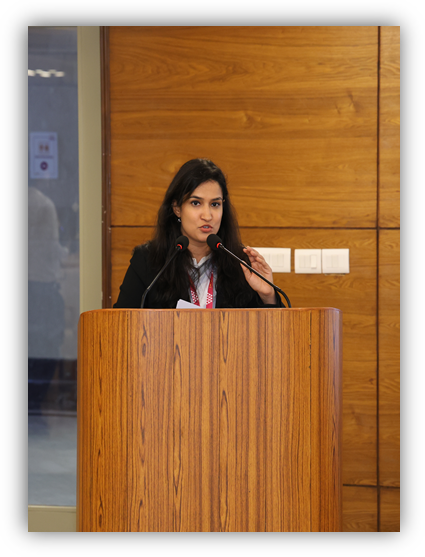
Kicking off the session, Ms. Aanchal Basur candidly spoke about the importance of a good award, highlighting the essential elements, such as clarity, coherence, fair reasoning, appropriate structure, and precision in claims. She went on to underscore the scope of the session and introduce the eminent panellists.
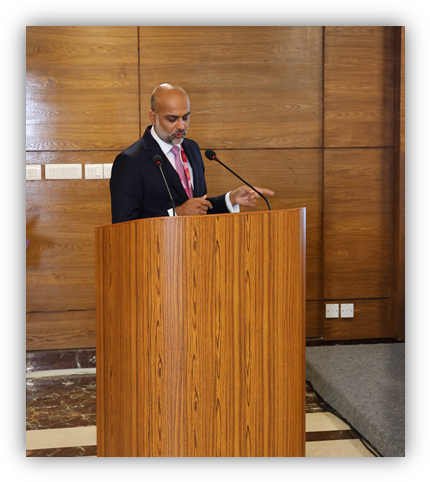
Beginning with the basics, i.e., the rules that govern an arbitration, especially while writing an award, Mr. Hafez Virjee presented his views from the perspective of an arbitral institution, specifically, Delos. After he explained the composition of Delos, Ms. Basur added that Delos had certain rules that stood out, such as Rule 1.2, which mentions proportionate cost. It also ensures that the parties’ due process rights are respected, dealing with the dispute efficiently and in a manner proportionate to its value, addressing the complexity of the issues in dispute, and recognizing the importance of the dispute to any ongoing relationships between the parties. She explained that rules like this provide an idea of the end goal to the arbitrator or the tribunal; it was a guiding factor. Ms. Basur further stated that the express insistence of the rules on ensuring that the award is enforceable was the principal purpose of Delos and essential to the system.
Mr. Virjee added that the institutions needed to be proactive as ultimately, they were there to help the decision-maker, i.e., the arbitrator, reach a decision. Thus, the primary obligation or the primary responsibility for efficiency was on the tribunal.
“At the end of the day, the arbitration would only be as good as the arbitrators.”
– Mr. Hafez Virjee, President and Co-Founder, Delos Dispute Resolution
Regarding the process concerns or paranoia, he explained the coordinating mechanism of the time and cost schedules provided by Delos, which made the tribunals think ahead and upfront about how they were going to run the proceedings. Furthermore, there were provisions whereby parallel proceedings could be run on merits and jurisdiction to save time and prevent delays.
Mr. Virjee also spoke about the appointment of arbitrators who were selected based on a balance between the proportionate amount for the value of the dispute, the experience of the arbitrator, the availability of arbitrators, and the means of arbitration.
Lastly, he remarked that it all came down to allowing the end users predictability because that’s what empowered them to run their businesses and have leverage in a negotiation.
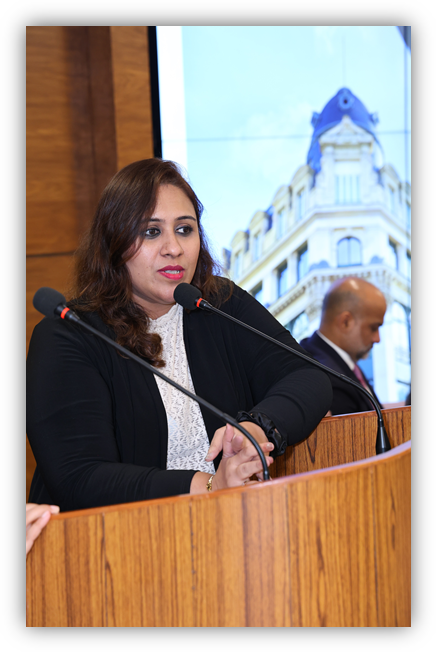
From the perspective of an in-house counsel, Ms. Nidhi Parekh spoke about what an award should look like and its enforceability. The first important aspect was the simplicity of the language since most of the people reading and implementing the award were non-lawyers. Secondly, the entire case history should not be mentioned again unless it was pertinent in order to keep the award crisp.
Taking a slight detour, Mr. Virjee asked Ms. Parekh about what the future could hold, considering the advent of AI. Ms. Parekh expressed a split opinion, stating that it could be utilised for research and streamlining the work of a lawyer, but it also tended to be misleading. She underscored the importance of what information was being responsibly fed to the AI.
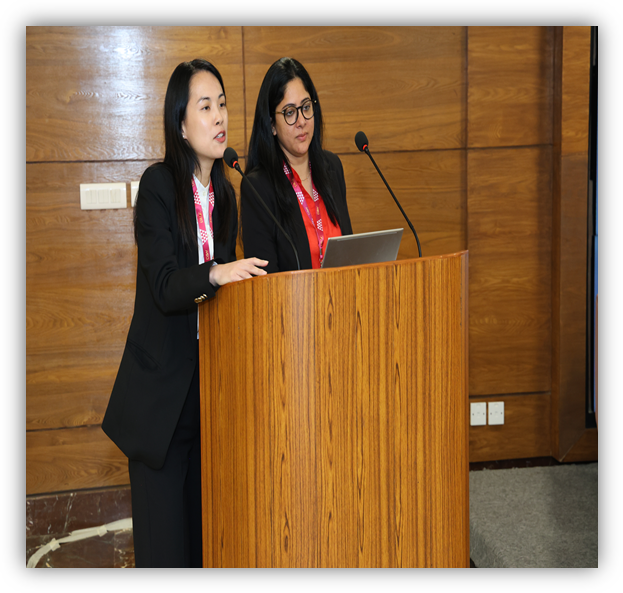
Coming back to award writing, Ms. Basur welcomed Ms. Lijun Chui and Ms. Shruti Sabharwal to explain the structure of an award.
After explaining the types of awards, such as interim, partial, final, and consent awards, they explained the basic structure of an award, such as the details of the parties and the tribunal, the seat of arbitration, the date of the award, the place of incorporation of the parties, and the procedural history.
They underscored the importance of taking the pain to record the measures taken by the arbitrator to ensure that the non-participating party had the opportunity to notify the arbitration in order to avoid them at any enforcement stage. Additionally, the importance of including the rules or laws governing the proceedings, the arbitrator, and the award, as it made it easier for the arbitrators to adjudicate on the setting aside of applications filed against an award. They also delved into the aspects of mentioning the jurisdiction and the reasons for it, the factual background, the list of issues to be decided, the analysis, the cost and interest, and lastly, the conclusion.
Lastly, they spoke about some general considerations that must be kept in mind while writing an award, such as adverse inferences, dissents, signing the award, and careful use of AI.
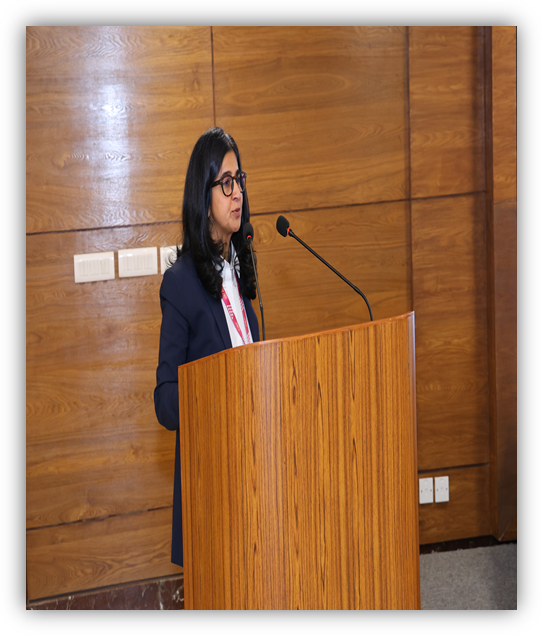
Expanding the discussion further, Ms. Diya Kapur took the dais to speak on the nature of the matter, the positions of the parties, and the reasoning. She emphasised the necessity of providing the reasoning behind an award and what constituted reasoning. Ms. Kapur traced the sequence of how the award would be written; from the claims of the claimant, the concerned clauses of the contract, the law referred to and relied upon, the witnesses called, the arguments and how they had been proved, the standard of proof, and the burden of proof that had been discharged, to the same aspects of the defendant’s side, and lastly, to the arbitrator’s application of the law, discussion of all the evidence, the clauses of the contract, which facts stood proved and why, the positions of the parties, the cases relied upon and the conclusion of why they had given a certain decision.
She further stated that for the award to be upheld when it gets challenged, it had to stand the tests of the Arbitration Act, the formal requirements of the award, patent illegality, contrariness to public policy of India, and especially, Section 34 of the Arbitration and Conciliation Act, 1996. Of course, the award had to meet other ancillary requirements, such as it must be nice to read, clear, and the language must be simple and crisp. Lastly, the reasons must be clear, concise, and not contradictory.
The session concluded with an interactive question-and-answer session with the audience about drafting styles, writing the money segment, acting a certain way as an arbitrator that could give the perception of bias, and much more.


